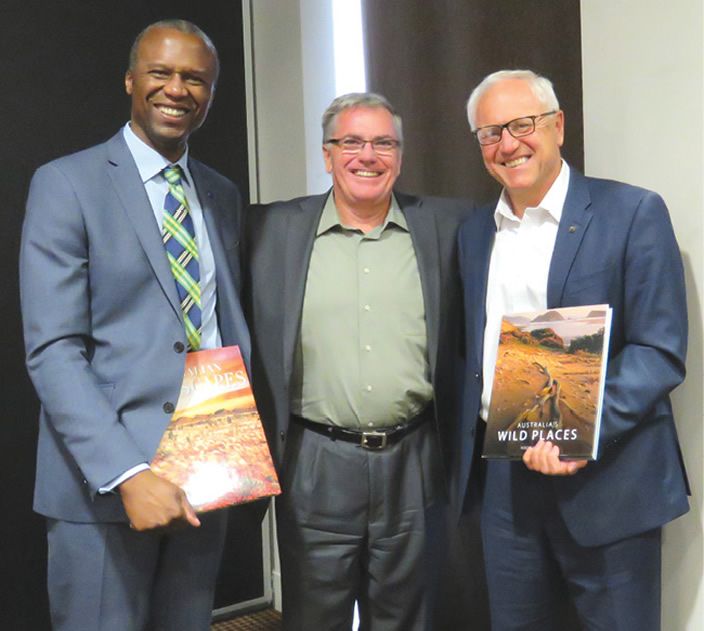
(left to right) Dr PatrickRoach NASUWT, Chris Watt IEUAand Marshall Jarvis OECTA
Canadian, UK and Australian union executives are putting their heads together to tackle the problems of globalisation, privatisation and data driven education policies that are affecting most OECD countries.
Marshall Jarvis, General Secretary of Ontario English Catholic Teachers Association (OECTA) and Patrick Roach, Deputy General Secretary of NASUWT, the UK’s biggest teacher union, visited the IEU recently to exchange ideas and address the IEUA National Executive Forum.
Roach is also an executive board member of Education International, and talked on global issues in education.
Jarvis said the Canadian union and IEU had enjoyed a strong relationship since the 90s, which had allowed both unions to build strength.
OECTA has recently been through tough bargaining with their Catholic employers, and borrowed some techniques used by the IEU during its Catholic campaign, including using video and Facebook to keep members informed.
“The problems we face are universal in nature, and it’s the way we approach them and cope with them that is so beneficial to share,” Jarvis said.
Roach said watching the news when he arrived in the country made him feel at home, as the problems in education are the same in Australia as the UK.
Making sure all children, including refugees, have access to quality education concerns all unionists.
“How should unions organise to cope with the new reality. Are governments feeling more confident about being anti union and restricting the way unions function and operate?” he said.
“Globally, data generation and analysis is being used to strip teachers of their professionalism.
“It’s been a problem on the UK landscape for at least 25 years.
“Governments are using data collection to control teachers and drive practice. League tables and international education ranking are high stakes, when politicians’ objectives are re-election.”



































































































































